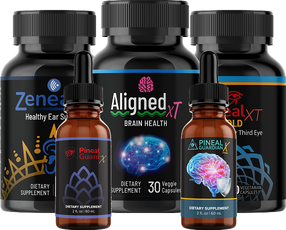Digital Dementia: Is Tech Wrecking your Brain?

Ever picked up your phone for a quick task and ten minutes later, you find you’re still holding it, somehow trapped in an endless scroll of news items or social media feeds?
How did you go from wanting to look something up quickly, to watching a series of cute puppy videos or scrolling through someone’s vacation photos?!
Or maybe you’ve forgotten why you even picked up your phone in the first place.
If this sounds familiar to you, trust me, you’re not alone. Our modern, tech-run world is constantly pinging and pulling at our brains, overloading them with digital stimuli. Doesn’t it just sometimes feel like a million voices all calling you at once?
And sure, smartphones, tablets, and apps have made life move faster and more convenient, there’s no denying it…but they’re also quietly rewiring our brains in a really detrimental way.
Think about how just a few years ago we all remembered people’s phone numbers! Now, you don’t have to memorize them, the phone does that for you.
This modern phenomenon has a name: Digital Dementia.

What Is Digital Dementia?
First of all, Yes, it’s a real thing! Coined by German neuroscientist Manfred Spitzer, Digital Dementia refers to cognitive decline caused by the overuse of digital technology.
It’s not the same as literal dementia, but the symptoms - shortened attention span, forgetfulness, poor concentration, and sluggish thinking - are worryingly similar.
It’s pretty clear to understand why it’s happening. We rely so heavily on our devices, using them for socializing, learning, sharing, working, etc that we stop using the mental muscles that keep our memory sharp and our brains switched on and engaged in the real world.
What It’s Doing to Your Brain
-
Memory offloading: Can’t remember phone numbers, directions, or appointments? That’s because you no longer need to. Your phone does it all. But like any muscle, your brain weakens when it’s underused.
-
Distraction overload: Receiving constant notifications really fragments your attention. Multitasking between apps and tabs reduces your brain’s ability to focus deeply, a vital skill for memory, listening and learning.
- Screen addiction: Dopamine hits from scrolling and checking messages create compulsive loops that shrink your brain’s gray matter, especially in areas linked to decision-making and impulse control. That’s pretty frightening!

Signs You Might Be Experiencing Digital Dementia
-
You frequently forget names, details, or what you were just doing.
-
You feel mentally foggy or fatigued after long screen sessions.
-
Your attention span feels shorter than it used to.
-
You find it hard to complete tasks without switching to another app or checking your phone.
-
You cannot stand in line at the grocery store or bank without compulsively checking your phone.
How to Take Back Your Brain
1. Make an effort to Use your Memory.
Try memorizing phone numbers, grocery lists, or short poems. Small daily mental challenges work to regenerate and rebuild neural pathways.
2. Implement screen-free zones.
Keep your bedroom, dining table, and morning routine tech-free. Your brain needs space to rest and reset, especially first thing! Try getting at least 5 minutes of morning sunlight before focusing your eyes on a screen.
3. Digital Detox Weekends
Take a screen-free day or two at the weekend, or if you can’t manage that - try an afternoon and evening. Even short digital detoxes can have lasting positive impact on your brain, enhancing your focus and resetting your mind.
I promise you’ll feel clearer, calmer and more rested after just a few hours of no-screens.

4. Practice single-tasking.
Practice maintaining your focus on one task at a time. Use tools like the Pomodoro method (25 minutes of focus, 5-minute breaks) to retrain your brain not to multitask.
5. Journal or write by hand.
Writing stimulates brain activity more deeply than typing. Bonus: it also improves memory recall. Try the “Morning Pages” practice of writing 3 pages of long-hand ‘brain dump” content first thing in the morning.
6. Supplement smart.
Support brain resilience with supplements like Pineal Guardian, which includes ingredients to combat oxidative stress, support focus, and promote restful, screen-free sleep.
The Bottom Line:
Look, the truth is, I don’t think technology is a bad thing, but I do believe that unchecked, it can slowly chip away at your brainpower.
The good news? The human brain is resilient, strong and adaptable. With a few mindful tweaks, you can reverse the damage, retrain your mind, and reclaim your mental clarity - one calm, centered and unplugged moment at a time.




